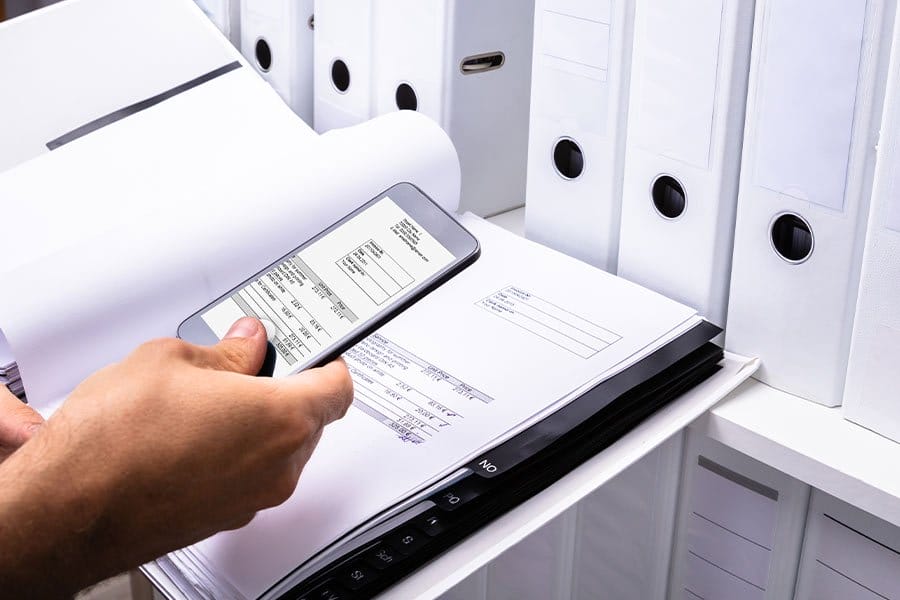The following guide covers What is Theft of Trade Secrets?
In today’s competitive business environment, trade secrets are a vital asset. Have you ever wondered what could happen if these secrets were stolen?
How would it affect the business and the overall economy? Let’s dive in to find out!
Powerhouse Forensics is an experienced Trade Secrets Theft investigator based in Houston, Texas who provides unparalleled investigative services.

What are Trade Secrets?
Trade secrets, as the name suggests, are unique business information, practices, or strategies that provide a competitive edge to an organization.
But what are the specific characteristics that define a trade secret?
Characteristics of Trade Secrets
Trade secrets are typically characterized by three main aspects:
- They are not generally known or easily ascertainable.
- They confer economic benefits on their holder due to their secrecy.
- They are the subject of reasonable efforts to maintain their secrecy.
Importance of Trade Secrets
Trade secrets are the lifeblood of a company. They could be as critical as a secret formula, like the one for Coca-Cola, or as simple as a particularly efficient manufacturing process.
This makes protecting them vital to the sustainability and success of a business.

The Concept of Theft of Trade Secrets
So, what exactly is theft of trade secrets? Let’s understand this concept in a more legal context.
The Legal Definition
Theft of trade secrets, also known as industrial or economic espionage, is the act of using illegal means to obtain trade secrets. This could include unauthorized access, copying, disclosure, or use.
Examples and Scenarios
For instance, if an employee leaves a company to work for a competitor, taking with him sensitive information about his former employer’s operations, that is considered theft of trade secrets.
The Impact of Theft of Trade Secrets
Theft of trade secrets can have far-reaching consequences, not just for the affected businesses, but also for the wider economy.
On Businesses
A business that loses its trade secrets can suffer significant financial losses, lose market share, and even face bankruptcy in extreme cases.
On the Economy
On a larger scale, theft of trade secrets can stifle innovation, disrupt the market, and lead to job losses, affecting the economy as a whole.

Legal Measures Against Theft of Trade Secrets
There are several legal measures in place to deter and penalize theft of trade secrets.
Domestic Laws
In the US, the Economic Espionage Act (EEA) criminalizes trade secret theft and provides for both civil and criminal penalties.
International Laws
Internationally, several agreements and treaties, such as the TRIPS Agreement, protect trade secrets and intellectual property rights.
Preventing Theft of Trade Secrets
Prevention, they say, is better than cure. So, what can businesses do to prevent the theft of trade secrets?
Measures Businesses Can Take
Businesses can implement various strategies to protect their trade secrets. These could include:
- Implementing strict internal controls and security measures.
- Using Non-Disclosure Agreements (NDAs) with employees and partners.
- Regularly training employees on the importance of maintaining secrecy.
The Role of Employees
Employees play a critical role in protecting trade secrets. By understanding the importance of trade secrets, adhering to company policies, and reporting any suspicious activities, they can significantly reduce the risk of theft.
Theft of Trade Secrets – Final Thoughts
In conclusion, the theft of trade secrets is a serious crime that can have far-reaching consequences for businesses and economies.
Legal measures are in place to deter such activities, but businesses also need to take proactive steps to protect their valuable trade secrets.
After all, these secrets can often be the difference between success and failure in today’s competitive business environment.
What is Theft of Trade Secrets? FAQs
What is meant by the term “theft of trade secrets”?
Theft of trade secrets, also known as industrial or economic espionage, refers to the act of illegally obtaining confidential business information that is not publicly available. This could include manufacturing processes, business strategies, software algorithms, customer lists, and more. Such theft could occur through a variety of means, including cyber hacking, espionage by employees, or breaches of contracts such as non-disclosure agreements.
What types of information can be classified as trade secrets?
Trade secrets can encompass a broad array of information that a company deems valuable and takes steps to keep confidential. This could include formulas, patterns, compilations, programs, methods, techniques, or processes. Trade secrets could also include less tangible items such as customer lists, business strategies, and market research. The exact definition of a trade secret may vary depending on jurisdiction.
What are the potential impacts of the theft of trade secrets?
The theft of trade secrets can have severe consequences for a company. It can lead to a loss of competitive advantage, financial loss, damage to reputation, and in extreme cases, it can even threaten the survival of a business. Beyond the company itself, trade secret theft can also affect the economy if it leads to job losses or undermines fair competition.
How is theft of trade secrets different from patent infringement?
Trade secret theft and patent infringement are both forms of intellectual property violations, but they are distinct. Trade secret theft involves the unauthorized access and use of confidential business information that a company has taken measures to keep private. On the other hand, patent infringement involves the unauthorized use of a patented invention. One key difference is that patents require public disclosure of an invention, while trade secrets do not.
Are there laws protecting against the theft of trade secrets?
Yes, many jurisdictions have laws protecting against the theft of trade secrets. In the United States, for example, the Defend Trade Secrets Act (DTSA) provides a federal remedy for trade secret misappropriation. Similar laws exist in many other countries. These laws provide a means for victims of trade secret theft to seek relief through legal action, including injunctions to prevent further dissemination and damages for economic harm.